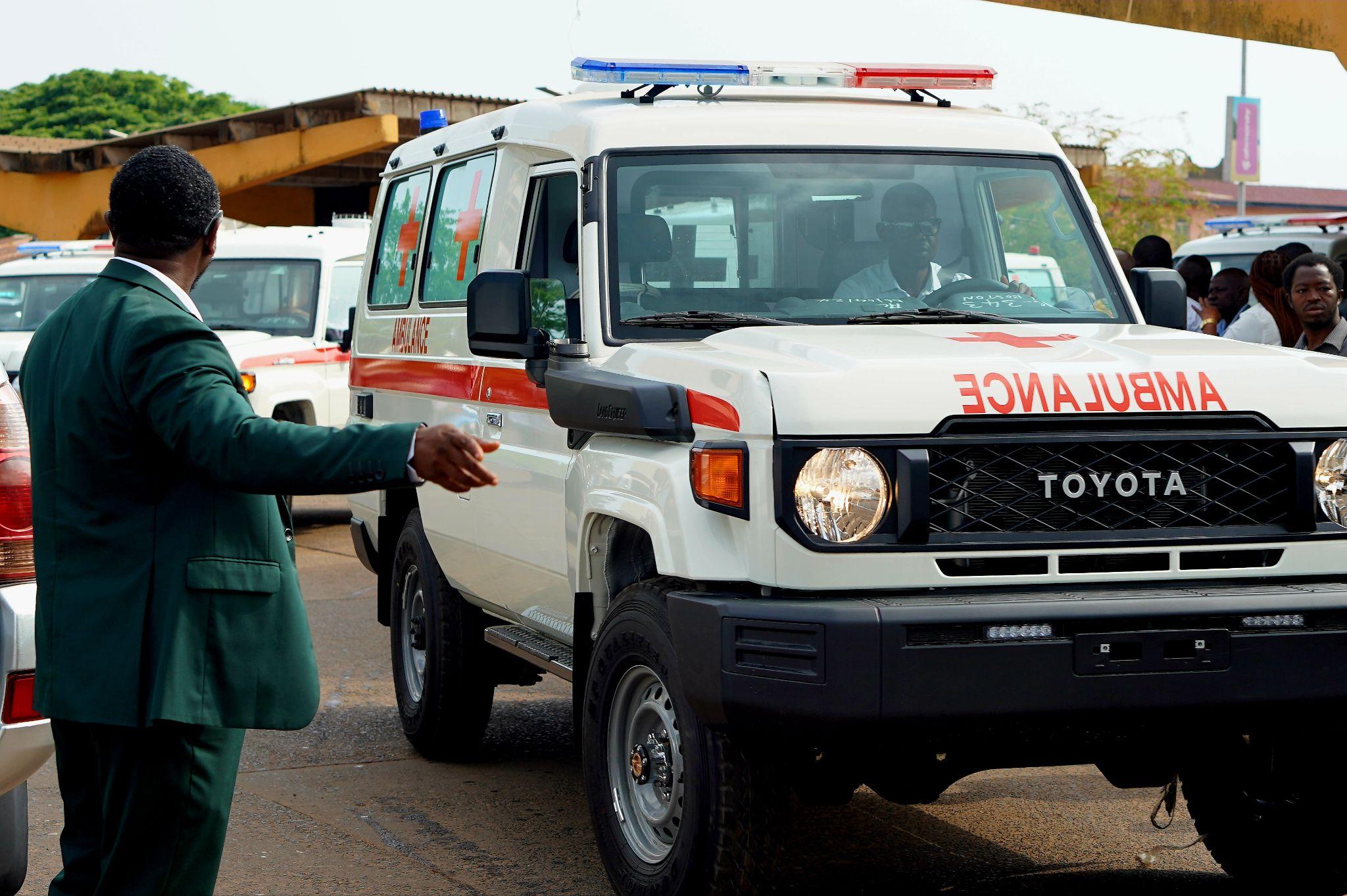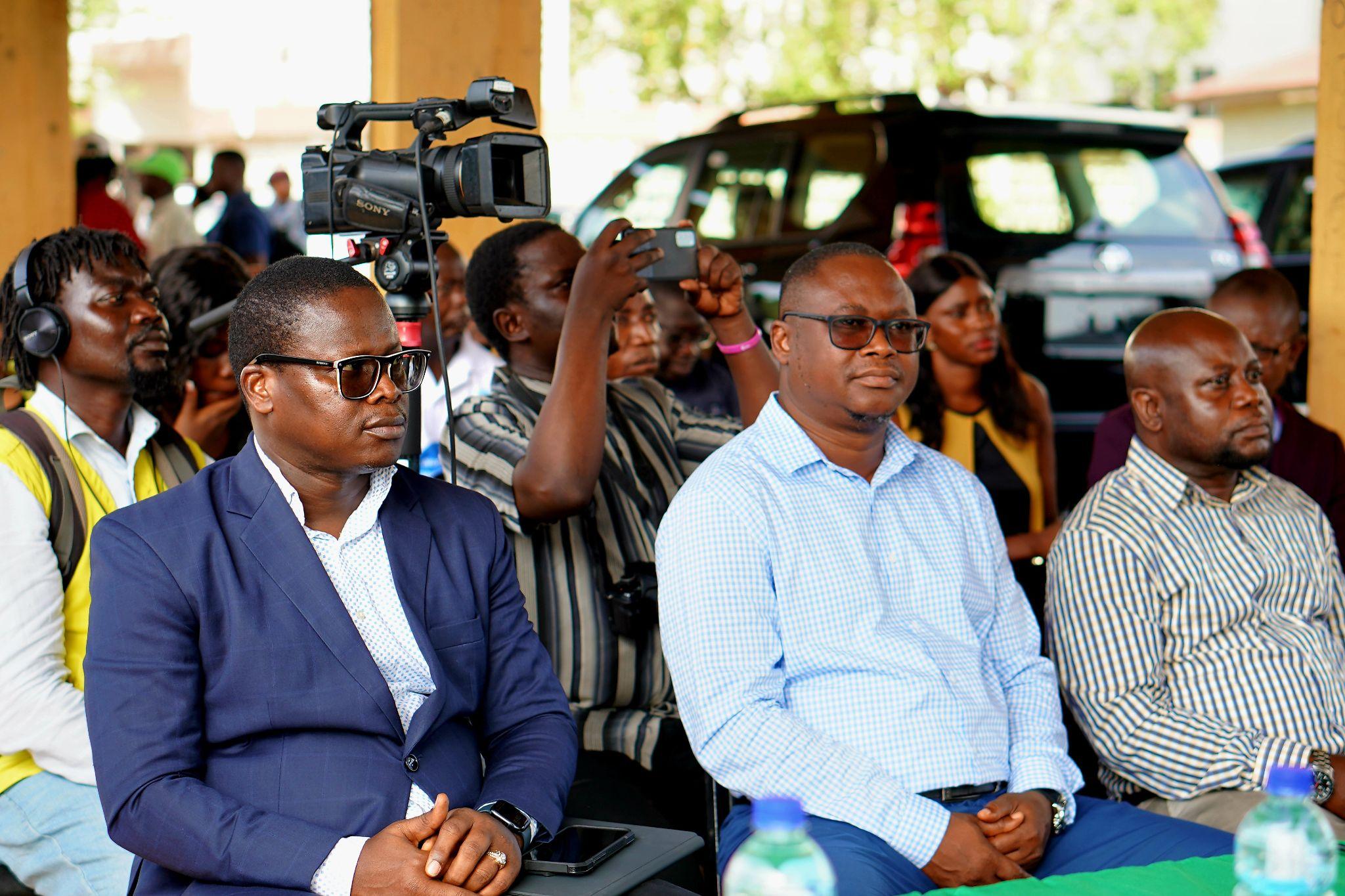
Minister of Health, Dr. Austin Demby, speaking at the official handing over of the newly purchased 19 vehicles, including 10 ambulances expected to improve the referral system and access to healthcare in Sierra Leone.
Ministry of Health, Freetown, Sierra Leone.
About 80% of ambulances in Sierra Leone are at least ten years old, which makes them prone to frequent breakdowns and sometimes ineffective in referring patients for care in time. It also means that the few durable ones will hardly be sent to bad terrains because of fears of damage. Over the years, people in hard-to-reach communities have borne the brunt of this challenge.
In the past, many deaths occurred in health facilities because patients were not moved from one level of care to a more advanced level of care in time. This was one of the reasons why maternal and child deaths persisted.

Some of the new ambulances showcased during the handing-over ceremony at the Ministry of Health’s Youyi Building Headquarters in Freetown, Sierra Leone.
But, all this is about to change. The Minister of Health, Dr. Demby Austin, has received 19 new vehicles, including 10 ambulances and 9 Toyota Prados. With 20 more to come, the cars will significantly improve referral systems and ease patients’ access to healthcare. Funded by , the Government of Sierra Leone and its partners, the vehicles will significantly improve emergency response time and maternal and child health in Sierra Leone.
“With these new ambulances, the challenges in referring patients for higher levels of care will be greatly mitigated,” says Dr. Austin Demby. He went on: more people will now get access to health facilities in time, as these ambulances will make healthcare more accessible to many and save additional lives.
 The Minister of Health, Dr. Austin Demby, on the left, cutting the tape after addressing journalists, health partners and ministry staff about the new 19 vehicles, including 10 ambulances on how he expects them to be used.
The Minister of Health, Dr. Austin Demby, on the left, cutting the tape after addressing journalists, health partners and ministry staff about the new 19 vehicles, including 10 ambulances on how he expects them to be used.
In the past, the healthcare image of Sierra Leone was all dark and gloomy. In fact, the country was described in many international media as the worst place in the world to become a mother. But, the Ministry of Health has worked assiduously in the past six to seven years to change this damaging narrative. Through hard work, dedication, and effective leadership, maternal mortality has been reduced from 1165 to 717 and from 717 to 443 in just over two years.
 A cross-section of the people, with high expectations and excitement, in attendance during the handing over of the 19 vehicles.
A cross-section of the people, with high expectations and excitement, in attendance during the handing over of the 19 vehicles.
The current administration, led by Dr. Austin Demby, is well on the way to further reducing this figure to less than 300 by 2025, one of the least in the Africa sub-region. To achieve the 300 targets by next year, radical and deliberate steps must be taken. The purchase of these ambulances exemplifies the drastic moves by the Demby-led administration to accelerate access to health services and to save lives.

